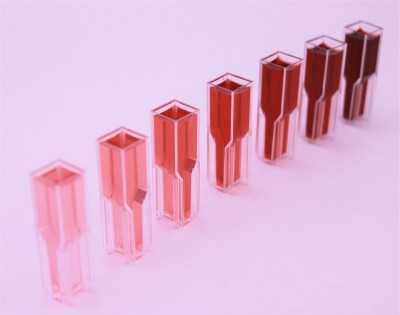Food Fermentation Europe: Advocating for ‘non-discriminatory, market-based’ regulatory framework for precision fermentation

The centuries-old technique of fermentation has been reignited in recent years thanks to developments in precision fermentation technology.
Precision fermentation uses microbial hosts as ‘cell factories’ for producing specific ingredients, from enzymes to natural pigments, proteins and fats. Not only can they replace animal-derived ingredients, but they are designed to improve sensory or functional attributes in food formulation.
Getting these novel foods on the European market is a challenge, however. According to leaders in the field, the current regulatory processes are ‘far too lengthy and opaque’. Changes are ‘urgently’ needed to facilitate market access.
In response, precision fermentation players have banded together to establish an alliance. Food Fermentation Europe (FFE) plans to work towards a ‘forward looking’ regulatory environment to bring more sustainable animal-free foods and ingredients to the European market.
Representing animal-free milk, eggs, cheese, and fats
Founding members include Better Dairy in the UK, Formo in Germany, Onego Bio in Finland, Those Vegan Cowboys in Belgium, and Imagindairy in Israel.
As to category focus, the alliance is broad, explained Christian Poppe, spokesperson for Food Fermentation Europe and Director Global Public Affairs at Formo. “We are covering the wide range of possibilities from milk to eggs and cheese, as well as ingredient focus – reaching from proteins all the way to fats and lipids.”
FFE comes after the establishment of other new industry alliances working to advance novel foods and ingredients, including Cellular Agriculture Europe and the Fungi Protein Alliance. But FFE is unique, Poppe told FoodNavigator.
“Food Fermentation Europe is unique as our focus is on fermentation enabled foods, whereas other alliances have a broader focus which includes processes beyond fermentation,”
“Our founding members came together as leaders in the precision fermentation sector and with a common vision for improving the regulatory framework for this. This will allow us to work together to achieve this change.”
FFE does not want to ‘limit’ its alliance, however, particularly as the sector is fast moving. “We are open for discussions with organisations in the space and want to work with others to get the right frameworks in place to enable our products like animal free milk, eggs and cheese to come to market.”
Tackling the ‘biggest challenge’ facing precision fermentation
The regulatory process for Novel Foods is ‘absolutely’ the greatest challenge facing precision fermentation-derived products and ingredients, according to FFE. The alliance does not believe the Green Deal climate ambitions align with this regulatory process, and is campaigning for change.
“We aim to address this, working together with policymakers to advocate for a predictable, non-discriminatory and market-based regulatory framework for fermentation food and food ingredients,” explained Poppe.
“We need policies that support innovation, investment and remove market barriers.”
Precision fermentation-derived food ingredients are already on the market elsewhere. Perfect Day in the US, for example, launched its first product – an ice cream made using precision fermentation-derived whey protein – back in 2019.
There is a risk that with stringent Novel Foods regulation, Europe could fall behind. But it’s not out of the race yet, suggested Raffael Wohlgensinger, CEO of Formo.
“Europe still has a chance to become an accelerator of helping the bioeconomy to be a catalyst for safe, sustainable and animal-free fermentation foods – but it needs to take radical policy action immediately.”
![Imagindairy_3[1]](/var/wrbm_gb_food_pharma/storage/images/_aliases/wrbm_large/media/images/imagindairy_3-1/16252303-1-eng-GB/Imagindairy_3-1.png)
What the current situation does mean, is that some European start-ups are looking to other geographies – which less stringent regulation – for initial commercialisation. Poppe confirmed this is the case for some of FFE’s founding members.
“Despite our alliance being composed of EU science-based companies, we are being forced to launch in other markets, meaning the EU is not grasping this opportunity for growth nor the possibility to have products on the market that can make a significant contribution to sustainable food systems.
“Europe, with its heritage of fermentation, scientific research infrastructure, and its ambitious climate policy, could be spearheading the change of our food systems.”
![Formo_1[1]](/var/wrbm_gb_food_pharma/storage/images/_aliases/wrbm_medium/media/images/formo_1-1/16252357-1-eng-GB/Formo_1-1.png)































